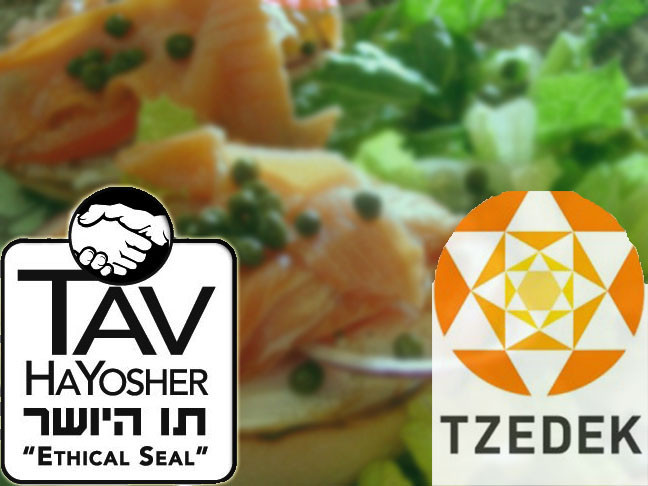Conservative Jewish hechsher in question
The kashrut of milk can vary depending on personal standards, with some Orthodox consumers relying on USDA supervisors, and others on a stricter Jewish supervision called Cholov Yisroel. Recent efforts to examine the labor, animal welfare, and environmental policies of food manufacturers, have resulted in a debate about their role in the kashrut of food.
“One has to be concerned about the workers when buying a food product. Everyone was disturbed by Postville,” said Rabbi Andrew Warmflash of the Hewlett-East Rockaway Jewish Center, a Conservative synagogue. Rabbi Warmflash said that most of his congregants keep kosher at home and are looking forward to seeing the Magen Tzedek on food packages by the end of this year.
Proposed after the 2008 mass arrest of illegal immigrant workers at the Agriprocessors facility in Postville, Iowa, the new Conservative hechsher seeks to encourage ethical practices in the kosher food industry. While the hechsher would be distinct from food supervision, its early slogans were slammed by Agudath Israel, a leading Orthodox advocacy organization.
“The goal of ‘Magen Tzedek,’ however, is nothing less than to redefine kashrut,” the Agudath Israel statement writes. “The brazen effort of Magen Tzedek to change the Jewish mesorah, or religious tradition, should come as no surprise, considering its source.”
Within three days of the Agudath Israel statement, the Rabbinical Assembly of the Conservative movement blasted the condemnation as misleading, citing the biblical and rabbinic commitment to fair treatment of workers, humane treatment of animals, and care for the earth, as part of the religious tradition. Nevertheless, local Orthodox rabbis expressed concern that these commandments may be confused with commandments related to food production.
“Someone who uses food that fits the Magen Tzedek mold will have a pure heart, but not a kosher pot,” said Rabbi Yossi Mendelson of Forest Hills.

 39.0°,
Fair
39.0°,
Fair 




